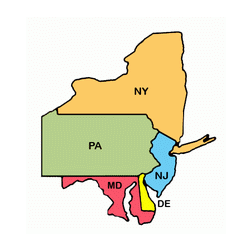
For our 2024 rankings, the research team at Nursing Schools Almanac collected data on nearly 3,000 nursing schools and campuses throughout the United States. We included the following states within our Mid-Atlantic rankings: Delaware, the District of Columbia, Maryland, New Jersey, New York, and Pennsylvania. We evaluated each nursing school in the region on three dimensions:
- The institution’s academic prestige and perceived value
- The breadth and depth of nursing programs offered
- Student success, particularly on the NCLEX licensure examination
We then combined these assessments into an overall score and ranked the schools accordingly. For a detailed description of our assessment methodology and dimension weights, please see here.
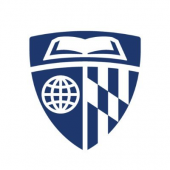
#1: Johns Hopkins University
The Johns Hopkins School of Nursing is ranked among the top three MSN, DNP, and online nursing programs by U.S. News & World Report. The school has also earned three consecutive NLN Center of Excellence designations for enhancing student learning and professional development. Johns Hopkins educates approximately 1,200 diverse nursing students, including 500 fulltime and 700 parttime students. The university recently transitioned from a prelicensure BSN program to a direct entry MSN program. The first five graduating classes of the direct entry MSN have scored a stellar 95% NCLEX pass rate. Johns Hopkins offers two other MSN tracks, a DNP with seven advanced practice specializations, and a doctor of philosophy (PhD) in nursing.
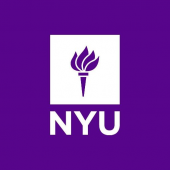
#2: New York University
U.S. News & World Report consistently ranks the adult-gerontology nurse practitioner programs at NYU Rory Meyers College of Nursing among the top ten nationally. The college is also sixth nationally in NIH nursing research funds awarded over the past decade, and NYU Meyers has twice earned a Center of Excellence designation from the National League for Nursing. In its flagship BSN program, the college graduates more than 400 students each year who have passed the NCLEX exam at an 87% first-try rate over the past decade. NYU Meyers also offers an MSN program with nine concentration options, post-master’s advanced certificates in eleven fields, a DNP degree with three entry paths, and a PhD in nursing research and theory development.
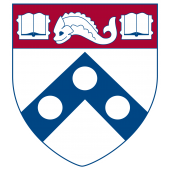
#3: University of Pennsylvania
Penn Nursing’s MSN degree is consistently ranked one of the top programs in the country by U.S. News & World Report. So too are five of its nurse practitioner specialty tracks in their respective categories. In addition, Penn Nursing has received the most NIH research funding of any nursing school in the country over the past five years, including more than $12 million in 2020. Graduates of Penn’s highly selective prelicensure BSN program have averaged a 93% first-time NCLEX pass rate over the past decade. At the doctoral level, the university offers a post-baccalaureate DNP in nurse anesthesia, two post-master’s DNP tracks, and a PhD program that broke ground as the first nursing doctorate in the Ivy League.
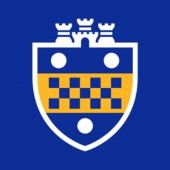
#4: University of Pittsburgh
Pitt Nursing earns high marks from U.S. News & World Report for both its master’s and doctoral programs. Pitt is also consistently ranked among the top five nursing schools nationwide in research funding from the National Institutes of Health. In addition to its graduate offerings, the school teaches traditional and accelerated bachelor’s degree programs, and its BSN students have passed the NCLEX exam at a 90% first-try rate over the past decade. Pitt Nursing has approximately 100 fulltime faculty, 98% of whom hold doctoral degrees. The School of Nursing was recently ranked among the top twenty globally by QS World University Rankings.
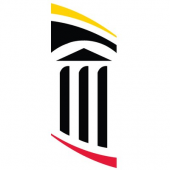
#5: University of Maryland
The University of Maryland School of Nursing (UMSON) currently enrolls nearly 2,000 nursing students. The university has received a top-ten ranking from U.S. News & World Report in at least ten different nursing specialty areas. UMSON also places #13 in NIH nursing research funding over the past decade. The school graduates approximately 300 prelicensure BSN students and another 100 direct entry MSN students annually. These individuals have passed the NCLEX exam at an impressive 89% first-attempt rate over the past decade. UMSON has 154 faculty members (136 of whom are fulltime), engages with more than 700 faculty associates and clinical preceptors, and offers students access to four organized research centers.
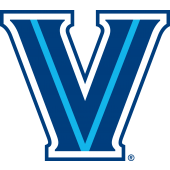
#6: Villanova University
Drawing on its Catholic beliefs and values, Villanova University has provided nursing education for over sixty years. The M. Louise Fitzpatrick College of Nursing typically has more than 700 students enrolled in its undergraduate program. These BSN graduates have exceeded a 94% first-time NCLEX pass rate for five consecutive years. Another 300 students are enrolled across Villanova’s MSN, DNP, and PhD programs. Designated a Center of Excellence by the NLN numerous times, the college boasts 7,000 alumni, 55% of whom live in the tristate area. Over 80% of the college’s fulltime and parttime faculty hold doctoral degrees.

#7: Columbia University
As part of Columbia University Irving Medical Center, Columbia Nursing enjoys a unique collaboration with the Vagelos College of Physicians and Surgeons, the Mailman School of Public Health, and the College of Dental Medicine. In fact, Columbia is one of eight nursing schools in the nation associated with a major academic medical center. Since its establishment in 1892, Columbia Nursing has graduated approximately 12,000 nurses. The school has a history of innovation: it launched the first master’s degree in clinical nursing in 1956, and it recently introduced a fifteen-month direct-entry MSN program for non-nurse college graduates. Columbia Nursing is proud to boast 38% ethnic diversity.

#8: Duquesne University
The School of Nursing at Duquesne University is recognized for creating Pennsylvania’s first BSN program in 1937 and the nation’s first online nursing PhD program in 1997. Duquesne has been designated an NLN Center of Excellence four consecutive times since 2008. In addition to its flagship BSN program, the university offers undergraduates an innovative five-year dual degree program in biomedical engineering and nursing. Duquesne’s BSN graduates have maintained a 91% first-time NCLEX pass rate over the past decade, including a 95.5% pass rate for the most recent graduating cohort. The School of Nursing also provides graduate programs at the master’s, post-master’s certificate, and doctoral levels, including both DNP and PhD options.
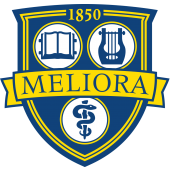
#9: University of Rochester
The University of Rochester School of Nursing prides itself on innovation in nursing education, including the country’s first acute care nurse practitioner program and its first center for nursing entrepreneurship. The school’s most recent initiative is its Council for Diversity, Equity, and Inclusion, which has helped Rochester to earn four consecutive Health Professions Higher Education Excellence in Diversity (HEED) awards. Over the past decade, 92% of students in the accelerated BSN program have passed the NCLEX licensure exam on their first try. The school also provides an online RN-to-BSN, an MSN with nine specialty tracks, a DNP with post-baccalaureate and post-master’s entry points, and a PhD in nursing and health science. Nursing students have access to the university’s state-of-the-art Clinical and Educational Resource Center as well as a 52-bed neonatal intensive care unit.
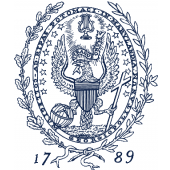
#10: Georgetown University
Georgetown University has educated more than 8,000 healthcare professionals since its nursing program was founded in 1903. The School of Nursing & Health Studies conducts a breadth of program offerings at the baccalaureate, master’s, and doctoral levels. Students in the school’s traditional four-year BSN program have a remarkable 97% NCLEX pass rate over the past decade. Graduates from the MSN-CNL track have performed even better, with a 99% NCLEX pass rate since the program’s inception. Georgetown also offers four MSN specialty tracks and two practice doctorates: doctor of nursing practice (DNP) and doctor of nurse anesthesia practice (DNAP). Students benefit from state-of-the-art facilities like the O’Neill Family Foundation Clinical Simulation Center and the Discovery Center.

#11: Drexel University
Drexel University’s College of Nursing and Health Professions has developed and refined more than 25 undergraduate and graduate nursing programs since 2002. The college currently includes more than 5,000 students, 200 full-time faculty, and 104 staff. Drexel graduates approximately 300-400 traditional BSN students each year with an exemplary NCLEX pass rate of 96% over the past decade. The college’s performance on numerous other board certification and licensing exams is well above average, including recent 100% pass rates for the physician assistant and nurse anesthesia programs.
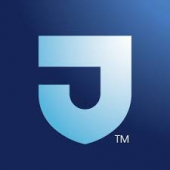
#12: Thomas Jefferson University
Jefferson College of Nursing is one of six colleges dedicated to health sciences education and research at Thomas Jefferson University. Undergraduate students can select from a traditional BSN track and two accelerated pathways. The college graduates 250-300 BSN students in total each year, with an admirable 89% first-time NCLEX pass rate over the past decade. Jefferson also offers an extensive range of graduate nursing programs, with eight distinct specializations available at the MSN and doctoral levels. Students benefit from access to Thomas Jefferson University Hospital, one of the top-ranked hospitals nationwide. The American Nurses Credentialing Center has recognized Jefferson for its quality patient care, nursing excellence, and innovations in professional nursing.
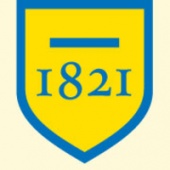
#13: Widener University
Formerly the Crozer College of Nursing, Widener’s School of Nursing opened in 1966 and marked the first time women were admitted as students. The school graduates 100-150 BSN students annually, and they have passed the NCLEX exam at rates as high as 90% in recent years. Widener is particularly recognized for its graduate nursing programs: the school offers five specialty master’s tracks, two doctoral programs (DNP and PhD), and three accelerated graduate options. Students at Widener enjoy an 8:1 student-to-faculty clinical ratio and state-of-the-art facilities at the Center for Simulation and Computerized Testing.
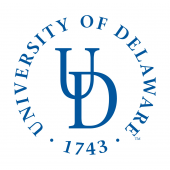
#14: University of Delaware
Founded 50 years ago, University of Delaware’s School of Nursing is focused on increasing the cultural and ethnic diversity of nurses in the state. In fact, the school received a three-year grant from the Health Resources and Services Administration in 2014 towards this effort. Roughly 150-180 students graduate from UD’s BSN program each year, achieving a first-time NCLEX pass rate of 88% over the past decade. The school places an emphasis on learning experiences and students have access to well-equipped simulation labs, including the Clinical Critical Care Lab and the Clinical Maternal Child Lab.
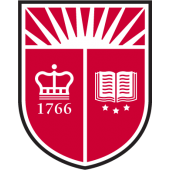
#15: Rutgers, The State University of New Jersey
The Rutgers School of Nursing is New Jersey’s largest institution of nursing education, with more than 1,600 students across campus sites in Newark, New Brunswick, and Blackwood. Undergraduates may select from three BSN pathways (traditional, accelerated second degree, RN-to-BSN) as well as a post-baccalaureate school nurse certificate. The school graduates more than 300 students annually from its prelicensure BSN programs, maintaining a superb 93% first-time NCLEX pass rate over the past three years. At the graduate level, Rutgers offers an MSN with informatics and leadership concentrations, seven post-master’s certificates, eleven areas of DNP specialization, and a PhD program with post-baccalaureate and post-master’s entry points.

#16: University of Scranton
Established in 1984, Scranton’s Department of Nursing draws from its Jesuit roots and offers nursing education with a strong base in the liberal arts. The department offers traditional BSN, RN-to-BSN, LPN-to-BSN, MSN (with four specialty tracks), and DNP programs. Students benefit from small class sizes and a strong clinical focus, with clinical experiences beginning during sophomore year. Indeed, Scranton’s BSN graduates have passed the NCLEX licensure exam at an impressive 93% rate over the past decade. Undergraduates also have opportunities for research, study abroad, and participation in domestic and international service trips.
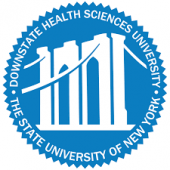
#17: SUNY Downstate Health Sciences University
SUNY Downstate College of Nursing enrolls more than 350 students across nearly a dozen program offerings. Baccalaureate students have two options: a second-degree accelerated BSN and an RN-to-BSN completion program. The accelerated BSN program graduates 50-75 students annually, with a strong 92% first-time NCLEX pass rate over the past decade. Graduate students can select from three MSN specializations (family nurse practitioner, nurse-midwifery, women’s health nurse practitioner) and three advanced certificates (family nurse practitioner, nursing education, women’s health primary care nurse practitioner). SUNY Downstate also recently launched a DNP program that offers both a post-master’s track and two post-baccalaureate tracks (family nurse practitioner, women’s health nurse practitioner).
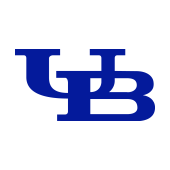
#18: University at Buffalo
University at Buffalo’s School of Nursing has educated nurses for over 75 years. The school provides a traditional BSN, accelerated BSN, RN-to-BSN bridge, master’s in nursing leadership, DNP program, and PhD program. The latter two are available in a distance learning format. The university graduates about 120 new nurses from its BSN program each year, and these students have passed the NCLEX exam at a 91% rate over the past ten years. UB School of Nursing students can access a varied list of clinical partners including a major cancer center, several comprehensive healthcare providers, a hospice center, and a veterans’ medical center.
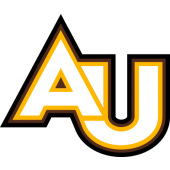
#19: Adelphi University
With more than seventy years of nursing education experience, the Adelphi College of Nursing and Public Health has twice been designated a Center of Excellence by the National League for Nursing. The college currently enrolls over 1,000 undergraduates and approximately 150 graduate nurses. Adelphi students benefit from small class sizes and strong collaboration with faculty. Approximately 250-350 BSN students sit for the NCLEX exam each year, and they have scored a 78% first-time pass rate over the past decade. The college also prides itself on the fact that approximately 90% of Adelphi master’s degree students gain employment within a year of graduation.
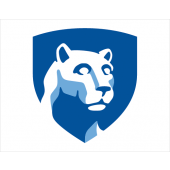
#20: Pennsylvania State University
Penn State’s College of Nursing offer an experience grounded in a student-centered environment with low student-to-faculty ratios. The college’s graduating BSN class of 150-250 students consistently performs very well on the NCLEX exam, with a pass rate as high as 99% in 2017. Undergraduates can study abroad in four international locations to observe different healthcare and nursing education systems. Penn State also offers a breadth of master’s and doctoral nursing degrees, and the school’s Center for Nursing Research provides consulting services for quantitative and analytical work.
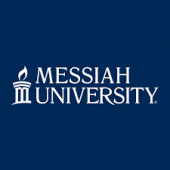
#21: Messiah University
The Department of Nursing at Messiah University recently constructed a state-of-the-art advanced simulation lab. This complements the school’s slate of newly renovated labs including a maternal-child lab, a psychiatric-mental health lab, two basic skills labs, and a physical assessment lab. Messiah also maintains contracts with a wide variety of excellent clinical agencies in the Central Pennsylvania area. In the university’s flagship BSN program, students have achieved an outstanding 97% first-time NCLEX pass rate over the past six years, including a perfect 100% pass rate for the classes of 2019 and 2020. Graduate nursing students can pursue an MSN degree with a nurse educator or nursing administration focus, a post-master’s certificate in either field, or a DNP degree with a family nurse practitioner or nursing leadership focus.

#22: Hunter College
Hunter-Bellevue School of Nursing (HBSON) offers three undergraduate programs: a traditional BSN, an accelerated second-degree program, and an RN-to-BSN bridge. It also provides six MSN specialization tracks, a post-master’s certificate in psychiatric-mental health, and a DNP program. The school graduates 90-130 BSN students annually, who have passed the NCLEX exam at a solid 88% rate over the past ten years. With an aim to provide care in culturally diverse communities, HBSON has supported nursing education initiatives in Haiti and introduced a Global Health Nursing elective at the undergraduate level.
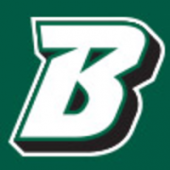
#23: Binghamton University
Since its establishment in 1969, the Decker School of Nursing (DSON) has earned a reputation for its baccalaureate, master’s, and doctoral nursing programs in the state of New York. DSON graduates 150-200 BSN students each year that have passed the NCLEX exam at a rate of 86% over the last decade. The school provides its nursing students with intensive clinical experiences and state-of-the-art facilities. Students complete hundreds of clinical rotation hours in acute care and community settings, and they also enjoy access to DSON’s Simulation and Practice Center.
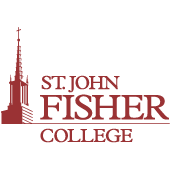
#24: St. John Fisher College
The Wegmans School of Nursing recently launched three new MSN specializations with an eye on the healthcare needs of the Rochester community: adult-gerontology primary care, adult-gerontology acute care, and psychiatric-mental health. The graduate nursing department also offers an M.S. in Mental Health Counseling and a Doctor of Nursing Practice, while the undergraduate department leads traditional BSN and online RN-to-BSN programs. Wegmans’ BSN students have passed the NCLEX exam at a solid 93% rate over the past decade.
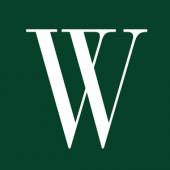
#25: Wagner College
In 2012, the Evelyn L. Spiro School of Nursing earned a coveted COE designation from the National League for Nursing. The school offers a traditional BSN, second-degree BSN, and RN-to-BSN completion program at the undergraduate level. It also offers MSN tracks for aspiring nurse educators and family nurse practitioners, a post-master’s FNP certificate, and a DNP program. Wagner produces more than 100 new BSN-educated nurses each year, and these graduates have passed the NCLEX exam at rates as high as 94% in recent years. Students learn at the Nursing Resource Center, which has a well-equipped high-fidelity simulation lab and a general skills lab.
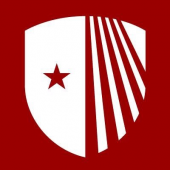
#26: Stony Brook University
At Stony Brook University’s School of Nursing, all graduate-level and online classes are recorded and archived, allowing students to access lecture materials at their convenience. Not surprisingly, Stony Brook’s online MSN program consistently ranks highly according to U.S. News & World Report. The school annually sits 100-160 BSN students for the NCLEX exam, and they have passed at a strong 92% rate over the past decade. Stony Brook also offers a wide breadth of graduate nursing programs, including nine MSN / advanced certificate tracks and a Doctor of Nursing Practice.
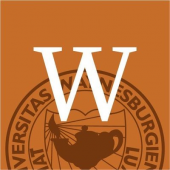
#27: Waynesburg University
Waynesburg University’s nursing programs are offered across the university’s four academic centers, allowing students greater flexibility. The university offers a traditional BSN along with RN-to-BSN, LPN-to-BSN, accelerated BSN, MSN, and DNP programs. Waynesburg maintains a small BSN graduating class of 40-50 students, and these nurses have passed the NCLEX exam at a stellar 98% first-try rate over the past decade. Nursing students at Waynesburg enjoy the recent addition of a state-of-the-art simulation lab.
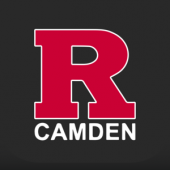
#28: Rutgers, The State University of New Jersey - Camden
The Rutgers School of Nursing became the fourth school on the Rutgers Camden campus in 2011, but their experience in nursing education extends almost forty years. Undergraduates can pursue a traditional prelicensure BSN, an accelerated second degree, or an RN-to-BSN pathway with both on-campus and online tracks. BSN graduates have performed well on the NCLEX licensure examination; for example, 93% of graduates have passed the exam on their first attempt over the past three years. BSN-prepared graduate students can pursue a DNP in two nurse practitioner specializations (family and adult-gerontology primary care), while MSN-prepared nurse practitioners can enroll in a post-master’s DNP track. Rutgers nursing students have access to clinical learning at more than a dozen prominent organizations in the area.
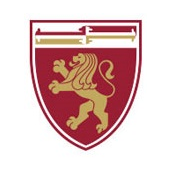
#29: Molloy College
Molloy College graduates a BSN class of approximately 300 students each spring, the second-largest such cohort in the entire state (after NYU). Molloy students perform well on their licensure exams, passing at a 92% first-time rate over the last four years. The college also offers a BSN degree completion program for RNs, as well as a unique dual-degree option that enables students to enroll in both undergraduate and graduate courses simultaneously. At the graduate level, Molloy offers seven distinct MSN tracks, nine post-master’s nursing certificates, and a highly regarded nursing PhD program.
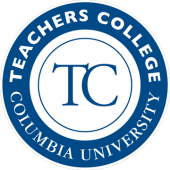
#30: Teachers College, Columbia University
Columbia University’s Teachers College has trained nurse education leaders since 1899. The college conducts programs for MSN-prepared and advanced practice nurses through its Department of Health & Behavior Studies. Teachers College’s doctor of education (EdD) in nursing education has a curriculum designed by nursing education experts and approved by the State of New York as an online offering. Doctoral students who would like clinical expertise in diabetes management may take advantage of the school’s diabetes education and management curriculum. The school also offers a five-course advanced certificate in nursing education specifically designed for doctorally prepared nurses.
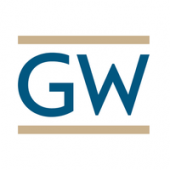
#31: George Washington University
Founded in 2010, George Washington University’s School of Nursing is already educating a diverse student body of more than 1,000 individuals. In 2018, the school was named an NLN Center of Excellence for enhancing student learning and professional development. Dual campus locations in Foggy Bottom and Ashburn are home to three premier skills and simulation laboratories. GW Nursing provides baccalaureate, master’s, and doctoral programs. The school has earned particular recognition for its online offerings, including its 100% online MSN program, from national publications like U.S. News & World Report.
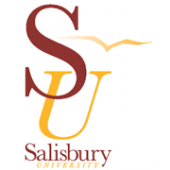
#32: Salisbury University
The Department of Nursing at Salisbury University graduates 80-100 prelicensure BSN students each year. These students consistently maintain one of the strongest baccalaureate NCLEX performances in Maryland, scoring a 93% first-time pass rate over the past decade. Salisbury has three BSN options: the traditional undergraduate degree, an accelerated pathway for non-nursing college graduates, and an RN-to-BSN completion program. Its MSN program has two tracks: nurse educator and healthcare leadership. Salisbury also offers post-BSN and post-MSN entry points for its DNP program.
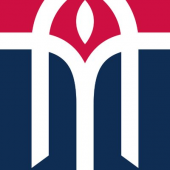
#33: DeSales University
DeSales University established the Department of Nursing and Health in 1974, along with its first BSN program. Today the school offers an abundance of undergraduate and graduate nursing programs. DeSales has both fulltime and part-time study options, and the school partners with more than 300 sites and preceptors to provide clinical experiences. Prelicensure BSN graduates have achieved a 93% first-time pass rate on the NCLEX exam over the past decade, including a 98% pass rate in the 2017-18 academic year. Moreover, MSN graduates have typically earned a 100% pass rate on national certification examinations across all tracks since the program’s inception in 1984.
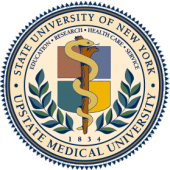
#34: Upstate Medical University
Upstate Medical University’s College of Nursing strives to meet the needs of RNs in the Syracuse and Central New York area. In 1959, to address the region’s nursing shortfall, Upstate Medical University launched an ADN program that educated more than 500 registered nurses over the next two decades. Today, Upstate Medical University is one of the longest-established upper-division nursing schools in the region. It offers an RN-to-BSN degree completion program, three MSN tracks, two post-master’s advanced certificates, and a part-time MSN-to-DNP program.
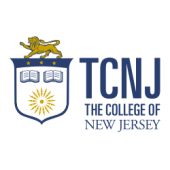
#35: The College of New Jersey
The Department of Nursing at The College of New Jersey has earned an NLN Center of Excellence designation for enhancing student learning and professional development. BSN students have achieved an impressive 93% first-time NCLEX pass rate over the past eight years. Moreover, 100% of BSN graduates that seek fulltime employment are placed within six months. Class sizes are small: the typical nursing class has 15 to 30 students, and the school limits clinical groups to a maximum of eight students. TCNJ also offers MSN programs for aspiring adult, family, and neonatal nurse practitioners; clinical nurse leaders; and school nurses.
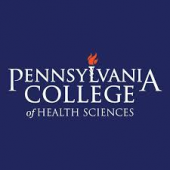
#36: Pennsylvania College of Health Sciences
Pennsylvania College of Health Sciences recently announced the launch of a three-year prelicensure BSN program, the first of its kind in the region. Meanwhile, the school’s existing full-time ADN program has graduated 200-300 students annually with NCLEX pass rates as high as 98% in recent years. PA College also offers an online MSN program with specializations in nursing administration and nursing education, as well as a hybrid post-master’s DNP that features a clinical affiliation with Penn Medicine Lancaster General Health. Students enjoy the college’s recently built 24.7-acre campus with state-of-the-art facilities.
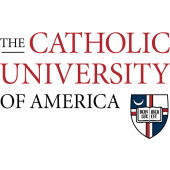
#37: The Catholic University of America
Established in 1935, The Catholic University of America’s Conway School of Nursing offers degree programs at both the undergraduate and graduate levels. The school has BSN tracks for traditional and second-degree students, four nurse practitioner MSN specialties, and both DNP and PhD pathways. Students in Catholic University’s nursing programs can gain clinical experience in over 100 local healthcare facilities, often with alumni preceptors. The school’s research-intensive doctoral program is located near preeminent research and health facilities, including the National Institutes of Health and the Institute of Medicine. Prelicensure BSN students have averaged a 91% first-time pass rate on the NCLEX examination since 2013, including a stellar pass rate of 98% or higher for the past three graduating classes.
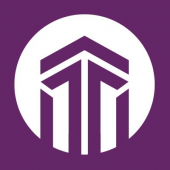
#38: Excelsior University
The School of Nursing at Excelsior University has been designated a Center of Excellence in Nursing Education by the National League for Nursing four consecutive times. The university’s online nursing degree programs include ADN, BSN, and MSN pathways. The ADN program is a prelicensure curriculum designed for practical nurses, vocational nurses, paramedics, and certain classifications of active duty military, National Guard, and Reserves personnel. This bridge program graduates more than 1,000 students annually, with approximately an 80% first-time NCLEX pass rate over the past decade. Excelsior’s RN-to-BSN program is a 121-credit-hour offering that can award students up to 61 credits for prior coursework and licensure examination completion. The university’s MSN students may pursue a specialization in education, informatics, or leadership and administration of healthcare systems.
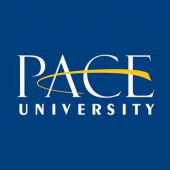
#39: Pace University
The Lienhard School of Nursing (LSN) at Pace University’s College of Health Professions offers its students learning opportunities by partnering with many well-known primary, acute, and tertiary care facilities and community agencies. LSN’s small class sizes ensure greater faculty attention, enabling BSN students to pass the NCLEX exam at a 90% rate over the past ten years. Across its two campuses in Pleasantville and New York City, LSN offers traditional and accelerated BSN programs for undergraduates as well as a variety of graduate degree and certificate programs.
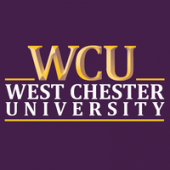
#40: West Chester University
The Department of Nursing at West Chester University offers traditional BSN, second-degree BSN, and RN-to-BSN options at the undergraduate level. The school’s prelicensure students have consistently performed well on the NCLEX exam, passing on the first try at a 91% rate over the past decade. West Chester’s graduate nursing programs include a school nurse certification, an MSN program with nursing education and adult-gerontology tracks, and a DNP program for MSN degree-holders. Students benefit from a variety of clinical experiences including acute care, community health, daycare centers, retirement centers, and veterans’ hospitals.
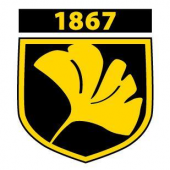
#41: Cedar Crest College
The undergraduate nursing program at Cedar Crest College has posted an NCLEX pass rate of 94% or higher for seven consecutive years, including a perfect 100% (59 out of 59) pass rate for the graduating class of 2019. Many of Cedar Crest’s BSN students pursue a minor or a double major, including popular options like psychology and art therapy. Students can also expand their knowledge and employment opportunities by completing a certificate in gerontology, healthcare management, or school nursing. The graduate nursing curriculum provides a breadth of specialty tracks, including two nurse practitioner concentrations (family/individual across the lifespan, adult-gerontology acute care) offered at the MSN, post-graduate certificate, and DNP levels.
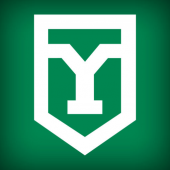
#42: York College of Pennsylvania
York College’s Stabler Department of Nursing offers traditional BSN, RN-to-BSN, MSN, and DNP programs to a total enrollment of nearly 600 students. The school’s flagship BSN program graduates 90-120 students each year, and these graduates have passed the NCLEX exam at an 89% rate over the past decade. Stabler students enjoy personalized attention, with approximately 36 individuals per class and an 8:1 clinical student-to-faculty ratio. York College’s recently renovated nursing building, Diehl Hall, includes state-of-the-art simulation rooms and critical care equipment.
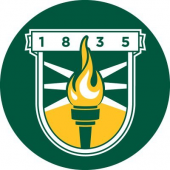
#43: SUNY Brockport
The Department of Nursing at SUNY Brockport offers three undergraduate pathways: a traditional BSN, a fast-track RN-to-BSN, and a second degree option. The most unique program is the fast-track RN-to-BSN, which may be completed 100% online. Students have the option to complete their clinical experiences within their own communities and regions, or they may opt to take advantage of international experiences in Peru and Costa Rica. Most nurses complete the program in 30-36 credits over 12 months full-time or 18-24 months part-time. In the school’s prelicensure BSN programs, approximately 100 students graduate each year and they achieve strong marks on their licensure exams, with an 89% pass rate over the past decade. At the graduate level, SUNY Brockport offers MSN and certificate of advanced standing (CAS) programs for aspiring family nurse practitioners. The university also recently launched a post-master’s DNP program, which enables FNPs to earn their clinical doctorate 100% online.
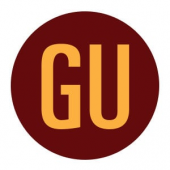
#44: Gannon University
Gannon University’s Villa Maria School of Nursing boasts a nearly 100% job placement rate for graduates. Over the past decade, the school’s traditional BSN students have passed the NCLEX exam at a stellar 92% first-try rate, well above state and national averages. Gannon also offers an online RN-to-BSN program, four distinct MSN programs, and a DNP. Students benefit from a low 10:1 student-to-faculty ratio and at least 980 hours of hands-on experience before graduation. The university also hosts the region’s largest technically advanced Patient Simulation Center, located in the Morosky College of Health Professions and Sciences.
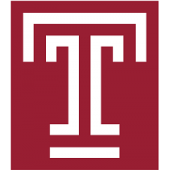
#45: Temple University
The College of Public Health at Temple University offers both BSN and DNP degree programs. The BSN curriculum has three entry points: a freshman option for high-performing high school graduates, a transfer option for current Temple students, and an external transfer option for applicants who are enrolled in another college or university. Qualified nursing students can join Temple’s Honors Program to take advantage of smaller course sizes, priority course registration, and enhanced networking opportunities. Over the past decade, the university has graduated roughly 60-100 BSN students annually with a stellar 91% first-time pass rate on the NCLEX licensure exam. Temple’s DNP program is one of the few offered in the Philadelphia metropolitan area. The curriculum offers two clinical tracks, with entry options for both BSN and MSN degree-holders.
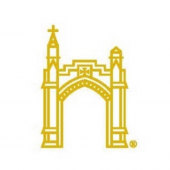
#46: Misericordia University
The College of Health Sciences at Misericordia University provides flexibility in its program offerings. The undergraduate division offers a traditional four-year BSN, a part-time evening BSN, a full-time second-degree BSN, and an accelerated RN-to-BSN program. At the graduate level, Misericordia offers an MSN with FNP specialization option, an FNP post-master’s certificate, and an online DNP. The school’s BSN program is the oldest such offering in Northeastern Pennsylvania and the largest discipline within the college. Students from the program have passed the NCLEX exam at rates as high as 96% in recent years.
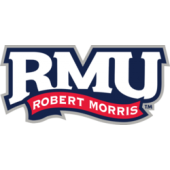
#47: Robert Morris University
Robert Morris University’s Department of Nursing educates several hundred students annually. The school’s BSN graduates consistently pass the NCLEX licensure examination at an impressive rate. In fact, the NCLEX pass rate for first-time test takers has exceeded 90% in six of the past seven academic years. RMU’s doctoral nursing graduates also perform extremely well on standardized tests, with a 96% pass rate on the nurse practitioner certification exam in one recent year. Students enjoy a low 8:1 student-to-faculty ratio in clinical settings. Over 50% of undergraduates take advantage of the school’s well-established study abroad options.
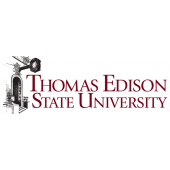
#48: Thomas Edison State University
The W. Carey Edwards School of Nursing at Thomas Edison State University offers flexible, self-paced programs for students seeking an alternative to traditional campus-based instruction. Options include a second degree BSN program, an MSN degree with several specializations, RN-to-BSN and RN-to-BSN/MSN degree completion pathways, and a DNP program. The second degree BSN is a 12-month program designed for adults who have already earned a non-nursing bachelor’s degree. TESU graduates have maintained an impressive 96% pass rate on the NCLEX licensure examination since 2013. The MSN program offers tracks in nursing administration, education, and informatics. The DNP has a specialty option in systems-level leadership and may be completed online in just 18 months.
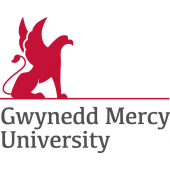
#49: Gwynedd Mercy University
GMercyU’s Frances M. Maguire School of Nursing and Health Professions has educated nurses for more than sixty years. At the undergraduate level, the school offers a range of prelicensure BSN pathways including traditional, three-year transfer, weekend, and accelerated formats. GMercyU graduates approximately 300 BSN students annually, with an 86% first-time NCLEX pass rate since the program’s inception. At the graduate level, GMercyU has an online DNP program, a post-master’s nurse practitioner certificate, and four MSN tracks: direct entry, adult-gerontology primary care nurse practitioner, family nurse practitioner, and pediatric primary care nurse practitioner. Nursing students benefit from the university’s 200+ affiliations with regional healthcare facilities, such as Children’s Hospital of Philadelphia, Doylestown Hospital, and Abington Memorial Hospital.
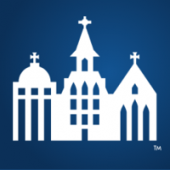
#50: Seton Hall University
Seton Hall University’s College of Nursing was established in 1937 as New Jersey’s first college of nursing. The university continues to lead in nursing scholarship, teaching, and practice. Indeed, Seton Hall has educated approximately one third of all New Jersey nurses and is one of the few universities in the nation approved for Army ROTC nursing candidates. In addition to New Jersey’s first BSN program, the college boasts one of just two nursing PhD programs in the state. Seton Hall typically graduates 80-120 students annually from its two BSN tracks (traditional undergraduate and second degree accelerated), with a stellar 94% first-time NCLEX pass rate over the past three years. The college also offers an RN-to-MSN bridge, four online MSN specializations, three nurse practitioner post-master’s certificates, and a post-master’s DNP with both direct care (advanced practice) and indirect care (administration and leadership) options.
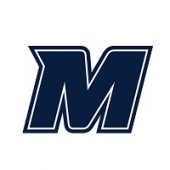
#51: Monmouth University
Monmouth University is home to the Marjorie K. Unterberg School of Nursing and Health Studies. The school’s Department of Nursing offers a number of degree options, including two BSN pathways (prelicensure, RN-to-BSN), two MSN pathways (traditional, RN-to-MSN), and a 36-credit online DNP. Monmouth also offers graduate certificates in forensic nursing and school nursing, along with post-master’s certificates in nursing education and several popular nurse practitioner fields (adult-gerontological, family, psychiatric-mental health). All nursing students are members of the Monmouth University Professional Nurses Association. Top BSN and MSN performers can also apply for membership in the Lambda Delta chapter of the Sigma Theta Tau nursing honor society.

#52: Hofstra University
Hofstra University houses more than a dozen colleges and schools that serve over 10,000 students across 300 degree programs. The Hofstra Northwell School of Nursing and Physician Assistant Studies offers a traditional prelicensure BSN program as well as a full suite of graduate programs for professional nurses seeking career advancement. The school provides top-tier clinical experiences through a large network of sites. Students conduct simulation laboratory activities at the Patient Safety Institute, interact with standardized patients at the Clinical Skills Center, and practice hands-on procedural skills at the Bioskills Education Center. The school offers three nurse practitioner specialties – adult-gerontology acute care, family, and psychiatric-mental health – across its MSN, advanced certificate, and DNP programs, as well as a unique Registered Nurse First Assistant Advanced Certificate. Hofstra Northwell nursing students have enjoyed perfect 100% graduation and employment rates.
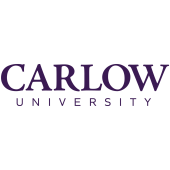
#53: Carlow University
Founded in 1948, the Department of Nursing at Carlow University prides itself on innovation, integrating art and science with a high-touch and high-tech approach. The school offers a range of undergraduate, master’s, and doctoral nursing programs including a dual-degree MSN-MBA option. Carlow’s BSN students have maintained an NCLEX pass rate of 92% over the past decade. In fact, in two of the last four years, 100% of the Department of Nursing’s BSN graduates passed the NCLEX exam on their first attempt.

#54: Wilkes University
The Passan School of Nursing at Wilkes University offers a full complement of programs at both the undergraduate and graduate levels. Students seeking a BSN degree can pursue a traditional, accelerated, or LPN-to-BSN pathway. Wilkes University graduates 70-100 students annually from its BSN program, and they have scored an impressive 92% first-time pass rate on the NCLEX licensure exam since 2016. Graduate options include an MSN degree with six concentrations and both types of doctoral nursing programs (DNP and PhD). Graduate nurses can concentrate in education, executive leadership, informatics, or three nurse practitioner fields (adult-gerontology primary care, family, psychiatric-mental health). Coursework for all graduate programs may be completed entirely online.
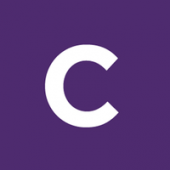
#55: Chatham University
Chatham University offers RN-to-BSN, MSN, and DNP programs in nursing. The RN-to-BSN option is designed for practicing RNs and offered online through the College of Continuing and Professional Studies. Chatham’s graduate nursing program includes specialty tracks in education and leadership / management. The school redesigned its online MSN program in 2013; modeled after the DNP program, it offers three tracks: leadership, education, and informatics. In 2015 the school introduced its first international track in the MSN program and had 21 Chinese nurses learning at Chatham.
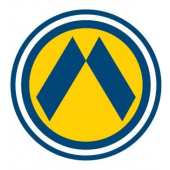
#56: La Salle University
La Salle University’s School of Nursing and Health Sciences prepares its students to provide care to underserved, diverse populations. Indeed, this is a core way the university delivers on its mission of service rooted in solidarity and justice. Nursing degree programs run the gamut from traditional and bridge BSN pathways to graduate-level MSN and DNP offerings. The school also offers a full complement of certificates including adult-gerontology (both CNS and NP), family nurse practitioner, nursing administration, nursing education, public health nursing, and school nursing. Students hone their skills in state-of-the-art simulation labs and clinical spaces with the assistance of experienced faculty. BSN students have scored an exceptional 95% first-time NCLEX pass rate over the past four years.
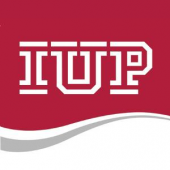
#57: Indiana University of Pennsylvania
With an admirable 94% first-time pass rate on the NCLEX licensure exam over the past decade, IUP’s Department of Nursing and Allied Health Professions is recognized for its excellence. In addition to four- and five-year BSN programs, the department offers MSN tracks in administration and education, two PhD pathways, and several healthcare certificates. IUP strives for state-of the-art facilities: the nursing department introduced its first simulation laboratory in 2007 and recently received a $300,000 federal grant to fund a second one.
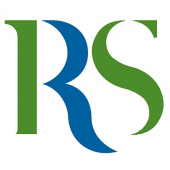
#58: Russell Sage College
The Department of Nursing at Russell Sage College will soon celebrate 100 years of educational excellence. Sage offers baccalaurreate, master’s, and doctoral degree programs in nursing. The BSN curriculum has two pathways: a prelicensure program for students new to nursing, and an RN-to-BSN completion program for nurses who hold an associate degree. Students in the prelicensure program take 60 credits in the arts and sciences, including 36 credits of general education requirements. The nursing major then includes 54 nursing credits and 27 credits of required support courses. Russell Sage College’s undergraduates have averaged a solid 82% first-time pass rate on the NCLEX exam over the past decade. Graduate students may pursue an MSN degree in three nurse practitioner fields (adult-gerontology, family, psychiatric-mental health), nurse education, or nurse administration. The college also leads a cohort-based doctor of nursing science (DNS) program that complements an online learning format with three weekend campus visits per semester.

#59: Clarion University
Clarion University’s College of Health Sciences and Human Services offers the full gamut of nursing programs at all degree levels. The university’s two-year ADN program efficiently prepares technical nurses to provide client-centered care. ADN graduates have achieved a solid 85% pass rate on the NCLEX licensure exam over the past decade, including an impressive 100% pass rate for the class of 2016. At the baccalaureate level, Clarion offers both a traditional undergraduate program and a three-semester RN-to-BSN pathway. Graduate students may pursue an MSN degree with a family nurse practitioner focus or an online MSN-to-DNP program that covers leadership, policy, population health, and clinical practice.
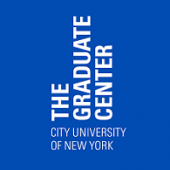
#60: The Graduate Center, CUNY
The Graduate Center at The City University of New York offers a PhD program for nurses that hold a master’s degree in nursing from an accredited school. The PhD program – formerly called a doctor of nursing science, or DNS – is composed of 49 post-master’s credits with no clinical component, as these courses would have been completed at the master’s level. Sample courses for the program include Applied Statistics, Bioethics, and Nursing Care Perspectives to Eliminate Health Disparities. In years one and two of the program, students will complete twenty hours of required courses each year. In the third year, students will complete nine hours of required coursework, and in the fourth year, students will complete and defend their dissertation.
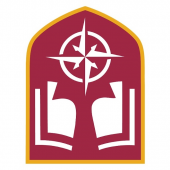
#61: Alvernia University
Alvernia University offers two pathways to a BSN degree (traditional, online RN-to-BSN) as well as a full slate of MSN and DNP programs. The undergraduate program has a track record of success on the NCLEX licensure exam: students have averaged a stellar 95% pass rate over the past seven years. BSN coursework covers a breadth of critical topics including leadership and ethics, geriatric nursing, family and community nursing, cultural competency, and informatics. The MSN degree offers specializations in nursing leadership and healthcare administration, nursing education, and healthcare informatics. The DNP program has two post-BSN nurse practitioner tracks (adult-gerontology, family) and two post-MSN leadership tracks (clinical, health systems).
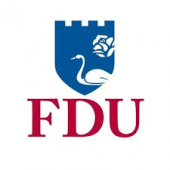
#62: Fairleigh Dickinson University
The Henry P. Becton School of Nursing & Allied Health at Fairleigh Dickinson University has educated nursing students since 1952. The school offers programs at both the Metropolitan and Florham campuses of FDU. The Metropolitan campus houses a full breadth of nursing programs including three BSN pathways, an MSN degree with five clinical tracks and three non-clinical tracks, five post-master’s certificates, and a DNP program with several entry points. The Florham campus focuses its nursing education on a traditional BSN degree and an MSN degree with two nurse practitioner specializations (adult gerontology, family psychiatric / mental health). Over the past five years, the university’s BSN graduates have achieved a 94% first-time pass rate on the NCLEX licensure exam, including a perfect 100% pass rate the past two years.
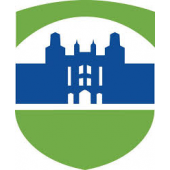
#63: Lehman College
The Department of Nursing at Lehman College is part of the School of Health Sciences, Human Services, and Nursing. The department offers three undergraduate nursing pathways including a generic BSN, an accelerated BSN, and an online RN-to-BSN program. Over the past decade, prelicensure BSN graduates have achieved a noteworthy 81% first-time pass rate on the NCLEX-RN exam. At the graduate level, Lehman College offers two MSN specializations (family nurse practitioner, pediatric nurse practitioner) and four post-master’s certificates (FNP, PNP, nursing education, nursing administration). In the fall of 2020, the college launched the Bronx’s first DNP program.
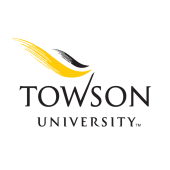
#64: Towson University
The Department of Nursing at Towson University has a unique dual-enrollment program that allows students to enroll simultaneously in an ADN program at a participating community college and the BSN program at Towson University. Students in this accelerated year-round program can earn both degrees in just 2.5 years. Towson also offers a traditional BSN program that graduates 150-200 prelicensure candidates each year. These students have averaged an 87% first-time NCLEX pass rate over the past decade. Nurses who already possess a BSN degree may enroll in Towson’s nursing education certificate program or its MSN degree program. MSN students take classes together one day each week, making this the only graduate nursing program in Maryland organized as a fulltime cohort.
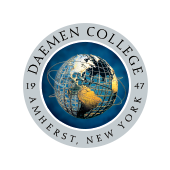
#65: Daemen College
The nursing department at Daemen College partners with local community colleges to deliver an innovative 1+2+1 curriculum. This unique program confers both an ADN and a BSN degree in only four years of study, and it enables students to work as a registered nurse after just their third year. The college also offers a traditional RN-to-BSN bridge, a DNP program, and three MSN tracks in adult-gerontology primary care, nursing executive leadership, and nursing education. Daemen’s nursing department strives to integrate several methods of instruction, including traditional classroom, distance education, hybrid, and online.
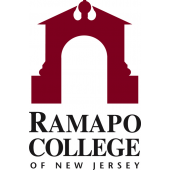
#66: Ramapo College of New Jersey
Ramapo College of New Jersey graduates a class of 70-90 prelicensure BSN students each spring. These students have excelled on their licensure exams in recent years. The school has achieved an NCLEX pass rate higher than 90% for seven consecutive years, including a stellar 99% pass rate for the class of 2019. Ramapo College also offers an RN-to-BSN program and an MSN focused on nursing education. The college maintains a clinical partnership with the Valley Hospital, which is designated a magnet hospital by the American Nurses Credentialing Center. In addition, Ramapo students have access to a well-equipped learning center with two designated computer labs, four patient stations, and a patient simulator.

#67: D’Youville College
The School of Nursing at D’Youville College offers degree programs at the BSN, MSN, and DNP levels. Prelicensure BSN graduates have achieved approximately a 79% first-time pass rate on the NCLEX exam over the past decade. The MSN program features specialty tracks in four areas: family nurse practitioner (FNP), nursing education with a clinical focus, nursing management and quality leadership, and psychiatric mental health nurse practitioner (PMHNP). The DNP program also offers FNP and PMHNP specializations. Working nurses who already hold an MSN degree may apply to the advanced certificate program, which offers FNP and PMHNP options plus a certificate in nursing and health-related professions education.
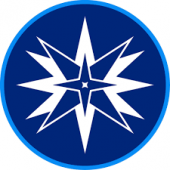
#68: Moravian University
Moravian University offers a breadth of undergraduate and graduate pathways through the Helen S. Breidegam School of Nursing and Public Health. Undergraduate students can pursue one of three BSN options: a traditional four-year curriculum, a 16-month accelerated pathway for college graduates, and an RN-to-BSN completion program. The school’s prelicensure BSN graduates have achieved a 90% first-time pass rate on the NCLEX-RN licensure exam over the past decade. At the graduate level, Moravian has an MSN program that prepares clinical nurse leaders, nurse administrators, nurse educators, family nurse practitioners, and adult-gerontology nurse practitioners. The AGNP focus has both acute care and primary care options. The university also conducts post-master’s certificates in all MSN specialization areas, as well as a unique MSN/MBA dual degree program.
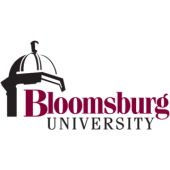
#69: Bloomsburg University
Bloomsburg University’s Department of Nursing offers several nursing degree options. Undergraduates can enroll in the school’s traditional BSN program, whose students have achieved an astounding 97% first-time pass rate on the NCLEX exam over the past decade. The BSN program has a small graduating class of 60-100 students each year, enabling close interaction with faculty. Existing nurses may opt instead for the school’s RN-to-BSN or RN-to-MSN program, both geared towards ADN- or diploma-educated nurses. Graduate students can pursue specialization as a family nurse practitioner, adult-gerontology nurse practitioner, nurse anesthetist, or nursing administrator.
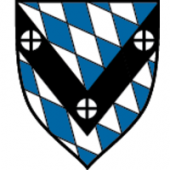
#70: Saint Vincent College
Saint Vincent College offers two innovative and collaborative programs in the nursing arena. At the undergraduate level, the college has partnered with Carlow University to deliver the Carlow BSN program on the Saint Vincent campus. Students complete all coursework in Latrobe, beginning clinical nursing courses during their sophomore year. Clinical rotations take place at a variety of regional sites, including nearby Excela Health locations and Children’s Hospital of Pittsburgh. At the graduate level, Saint Vincent College teams up with Excela Health to deliver a nurse anesthesia program. The Excela Health School of Anesthesia recently transitioned this offering from a 27.5-month Master of Health Science in Nurse Anesthesia to a 36-month Doctor of Nurse Anesthesia Practice.
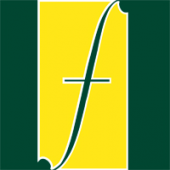
#71: Felician University
Founded as Immaculate Conception Normal School almost a century ago, Felician University is one of 24 Franciscan universities in the United States and the only one in New Jersey. The School of Nursing offers three BSN pathways (traditional, accelerated second degree, RN-to-BSN), three MSN specializations (adult-gerontology nurse practitioner, family nurse practitioner, nursing administration), an RN-to-MSN online fast track, and a post-master’s DNP program. Graduate certificates are also available in all three MSN specialties. Felician students learn and work in the Barbara J. Toscano Nursing Resource and Simulation Center, a state-of-the-art skills lab where they can apply their nursing skills in a realistic healthcare environment. Since 2013, Felician’s BSN graduates have achieved an excellent 89% first-time pass rate on the NCLEX national licensure exam.
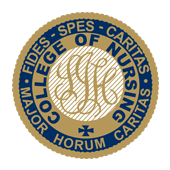
#72: St. Joseph’s College of Nursing
St. Joseph’s College of Nursing was founded in 1898 by the Sisters of St. Francis. Over the past 120 years, the college has produced more than 4,000 newly minted nurses, with 120-150 new graduates joining their ranks each year. St. Joseph’s offers a number of tailored pathways to the nursing profession, including a traditional two-year weekday ADN and an accelerated 18-month evening / weekend program. The school has also designed a dual degree partnership in nursing (DDPN) option with Le Moyne College, awarding both an associate degree and a baccalaureate degree in four years over a 1+2+1 class schedule. St. Joseph’s students have earned a stellar NCLEX pass rate of 93% over the past decade. Graduates are given transfer consideration into the RN-to-BSN programs of more than a dozen local and online nursing colleges.
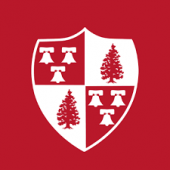
#73: Montclair State University
Montclair State University serves 21,000 students through seven distinct schools. The School of Nursing offers three programs: a new four-year prelicensure BSN, an RN-to-BSN degree completion pathway, and an online MSN degree. The MSN program has entry points for both BSN-prepared nurses and for nurses with a baccalaureate degree in another field. The MSN also offers concentrations in clinical research coordination, nursing administration, and nursing education. Montclair State provides its nursing students a state-of-the-art learning facility that includes mediated classrooms, computer study areas, a nursing skills laboratory, an anatomy laboratory, and high-fidelity simulation rooms.
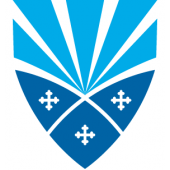
#74: Holy Family University
The School of Nursing & Allied Health Professions at Holy Family University has a variety of degree programs at the undergraduate and graduate levels. Undergraduate pathways include the traditional four-year BSN, second degree ABSN, and accelerated RN-to-BSN. Prelicensure BSN students have consistently performed well on the NCLEX exam, posting an 89% first-time pass rate over the past decade. Graduate options include an MSN with nursing administration and nursing education certificates, as well as a new blended DNP program. Holy Family University is noted for its low student-to-faculty ratio in clinical settings, simulation in every course through the school’s simulation lab, and exposure to a variety of hospital systems and clinical placements in Pennsylvania and New Jersey.
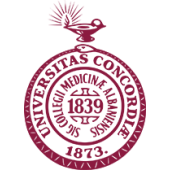
#75: Albany Medical College
Albany Medical College’s Center for Nurse Anesthesiology offers a doctor of nursing practice degree that prepares graduates to begin work immediately at hospitals and other healthcare facilities. During the first year of the program, students complete coursework in basic sciences, research, nurse anesthesia practice, and clinical practicum laboratories. In the second and third years, students continue the clinical practicum laboratories and nurse anesthesia courses; they also complete board preparation coursework and a clinical residency. Albany Medical College’s most recent graduating class of 27 students enjoyed an 81% second-time pass rate on the national certification examination and a perfect 100% employment rate within six months of graduation.
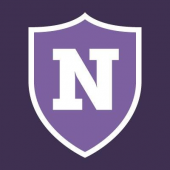
#76: Nazareth College
Nazareth College has three pathways to a BSN degree: a traditional undergraduate program, an LPN-to-BSN bridge, and an RN-to-BSN completion program. Nazareth offers its students the unique opportunity to study and work overseas. For example, the college offers a Belize service-learning project that takes place over spring break, pairing students with residents of Octavia Waight Centre, a nursing home in San Ignacio. The college also offers a Finland study abroad program that takes place over one or two semesters; the two-semester option makes students eligible for a dual degree and for licensure in the European Union. Nazareth College students have achieved a stellar 97% first-time pass rate on the NCLEX-RN licensure exam over the past four years.
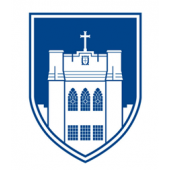
#77: Mount Saint Mary College
Mount Saint Mary College offers five pathways in nursing including a traditional BSN, an adult degree completion program, an LPN-to-BSN bridge, an RN-to-BSN bridge offered in a hybrid on-site / online model, and an MSN degree. The traditional BSN is a four-year program for students with no prior nursing education, while the adult degree completion program is an evening and weekend program designed especially for adult learners. The bridge programs are designed for existing LPNs and RNs who wish to advance their nursing education in a streamlined manner. Across prelicensure pathways, BSN students have averaged an 86% first-time pass rate on the NCLEX exam during the past decade. Mount Saint Mary’s MSN degree prepares nurses to enter the healthcare arena as nurse practitioners.
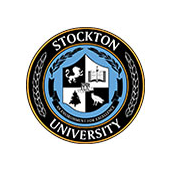
#78: Stockton University
Stockton University’s School of Health Sciences offers five nursing programs: a traditional BSN, an accelerated second degree BSN, an RN-to-BSN completion program, an MSN for aspiring adult-gerontology primary care nurse practitioners (AGPCNPs), and post-master’s certificates for both AGPCNPs and FNPs. In recent years, 94% of the school’s MSN students and 100% of its FNP students have passed their respective national certification exams. The undergraduate program demonstrates similar excellence: prelicensure BSN students have passed the NCLEX exam at an 89% rate over the past eight years. Stockton University has an on-campus simulation lab that mimics real-life experiences, with actors playing patients.
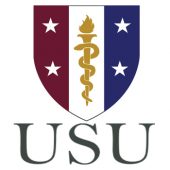
#79: Uniformed Services University of the Health Sciences
The Daniel K. Inouye Graduate School of Nursing at the Uniformed Services University of the Health Sciences was established by Congressional action in 1993. Over the intervening thirty years, the institution has graduated more than 1,000 military and federal nursing leaders. The university’s DNP program prepares APRNs to provide high-quality patient care in a range of settings (both traditional and austere), to support combat and humanitarian operations, and to lead healthcare policy in the unique military and federal environments. The nursing PhD program prepares nurse scientists to conduct original research aligned with the priorities of the military and federal health systems. USU students pay no tuition; in fact, they receive a salary during their enrollment. Nursing graduates have enjoyed exceptional outcomes, including a 99.9% overall certification pass rate since the GSN’s inception.

#80: William Paterson University
William Paterson University is the second-oldest of the nine state colleges and universities in New Jersey. It is also the third-most diverse of these institutions. The Department of Nursing offers baccalaureate, master’s, and doctoral degrees as well as graduate certificates. Undergraduate students can pursue a traditional BSN track, an accelerated second-degree program, or an RN-to-BSN completion pathway. Prelicensure students have averaged a stellar 96% NCLEX pass rate over the past four years. Graduate students can pursue several MSN specializations including adult-gerontology nurse practitioner, family nurse practitioner, nursing administration, and nursing education. All four focal areas are offered through both traditional (post-baccalaureate) and RN-to-MSN pathways. Post-master’s certificates are also available in the AGNP and FNP focal areas. Finally, the university offers a post-master’s, 41-credit-hour DNP program that can be completed in just seven semesters of fulltime study.
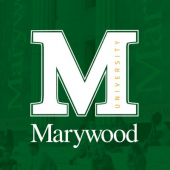
#81: Marywood University
Marywood University’s tight-knit community of 3,000 students enjoys a low 12:1 student-to-faculty ratio on the school’s scenic 115-acre campus. The Department of Nursing offers three undergraduate pathways, including the core prelicensure BSN program as well as bridge programs for LPNs and RNs. The BSN curriculum combines the liberal arts and sciences, applying them to nursing care and practice. Students are prepared for intermediate to upper-level positions at a variety of healthcare facilities such as hospitals, clinics, and nursing homes. Marywood graduates a small prelicensure class of 20-35 students annually. These individuals have averaged an 86% first-try pass rate on the NCLEX exam over the past decade.
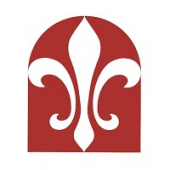
#82: La Roche University
La Roche University offers several educational pathways through its Nursing Department. At the undergraduate level, La Roche conducts online RN-to-BSN and RN-to-MSN degree completion programs. A school nurse certificate is also available for BSN-prepared RNs or those who are currently enrolled in La Roche’s RN-to-BSN program. At the graduate level, the university recently launched an entry-level MSN program, which provides an accelerated path to RN licensure for students who already hold a baccalaureate degree in a non-nursing field. La Roche’s MSN program has specialty tracks in nursing administration, nursing education, and clinical nurse leader. Graduate students can also pursue a post-master’s certificate in any of these fields.
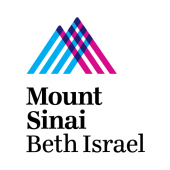
#83: Phillips School of Nursing
An integral part of Mount Sinai Health System, the Phillips School of Nursing is one of just 62 schools nationwide deemed a Center of Excellence by the National League for Nursing. PSON offers two distinct BSN pathways: an accelerated program for baccalaureate degree-holders from a non-nursing discipline, and an RN-to-BSN completion program for nurses with an associate degree or diploma. Each program is designed for completion in just 15 months of fulltime study. PSON graduates have passed the NCLEX-RN licensure exam at an 84% first-try rate since the program’s launch, frequently exceeding both the state and national averages. The school recently relocated to a new facility in Manhattan’s East Harlem neighborhood, featuring more than 35,000 square feet of classroom, laboratory, and simulation space.
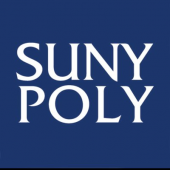
#84: SUNY Polytechnic Institute
SUNY Polytechnic Institute offers several innovative pathways for nursing students. The school’s 1+2+1 partnership with St. Elizabeth College of Nursing (SECON) enables students to complete two nursing degrees – an ADN from SECON and a BSN from SUNY Poly – in four years, all while living on the SUNY Poly campus. The school’s two-year RN-to-BSN program is now offered online beginning with the 2018 fall semester. SUNY Poly also offers an accelerated BSN/MSN program with specializations in family nurse practitioner and nursing education, as well as certificates of advanced study in both fields.

#85: College of Staten Island
The College of Staten Island, part of the vast City University of New York, offers a breadth of nursing programs across all degree levels. Undergraduate options include ADN and RN-to-BSN programs. The undergraduate curriculum combines science, humanities, and nursing coursework with supervised clinical experiences and the opportunity to practice nursing skills in state-of-the-art laboratories, including a high-fidelity simulation center. Over the past decade, ADN graduates have achieved a solid 83% first-time pass rate on the NCLEX-RN licensure exam. At the graduate level, CSI offers an MSN degree with two adult-gerontological specializations (clinical nurse specialist, primary care nurse practitioner) and two doctoral programs (DNP, PhD in nursing).
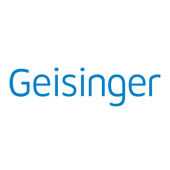
#86: Geisinger Lewistown Hospital School of Nursing
Geisinger Lewistown Hospital School of Nursing offers an RN diploma program with two tracks: a traditional two-year curriculum and an LPN-to-RN bridge. The latter track grants advanced placement to practical nurses with a current unencumbered license, allowing them to bypass the first semester of coursework. The school’s graduates enjoy excellent outcomes. Over the past decade, students have averaged a 97% first-time pass rate on the NCLEX-RN licensure exam. Indeed, seven of the past nine graduating classes scored a perfect 100% pass rate.
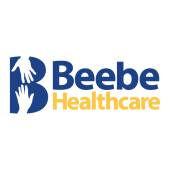
#87: Margaret H. Rollins School of Nursing at Beebe Healthcare
Margaret H. Rollins School of Nursing at Beebe Healthcare has educated nurses since 1921. The school’s RN diploma program provides extensive clinical experiences in both inpatient and outpatient care areas, as well as courses that utilize the latest technological and academic instructional methods. Clinical experiences take place in a breadth of settings including acute, critical, community, transitional, and rehabilitative care. After successful completion of the diploma program and RN licensure, 30 credits are awarded toward BSN completion at Wilmington University or the University of Delaware. Over the past decade, nursing diploma graduates have achieved a strong 92% first-time pass rate on the NCLEX-RN licensure examination.
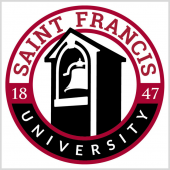
#88: Saint Francis University
Graduates of the Saint Francis University BSN program have achieved a perfect 100% pass rate on the NCLEX exam six of the past seven years, and they’ve maintained an impressive 97% pass rate over the past decade. In addition to the BSN degree, Saint Francis University’s School of Health Sciences and Education offers an MSN with a leadership / education track. The program is offered online with two required residencies, and it can be completed in just 26 months. Saint Francis students benefit from small class sizes, a strategically planned sequence of courses, start-of-the art simulation centers, and clinicals that take place at major local hospitals and healthcare facilities.
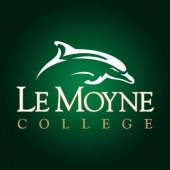
#89: Le Moyne College
The Department of Nursing at Le Moyne College has four undergraduate pathways, including two dual-degree partnerships with St. Joseph’s College of Nursing and two degree completion programs. The core dual-degree partnership with St. Joseph’s is designed for high school graduates who want to study nursing when they enter Le Moyne College as freshmen. The accelerated version is for students who already hold a bachelor’s degree in a non-nursing field. Le Moyne’s degree completion pathways enable both RN-to-BSN and RN-to-MSN progressions. At the graduate level, Le Moyne offers a traditional MSN program with tracks in family nurse practitioner, nursing education, and nursing administration.
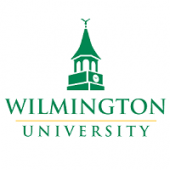
#90: Wilmington University
The College of Health Professions at Wilmington University has more than a dozen nursing programs for aspiring nurses seeking an undergraduate degree, an advanced degree, or a certificate. Undergraduate pathways include a pre-RN option for second-level ADN students, an RN-to-BSN for nurses that hold a diploma or ADN, and an accelerated RN-to-BSN for nurses that have a bachelor’s degree in another field. Graduate options include an MSN with nurse practitioner or leadership specialization, dual-degree tracks that pair the MSN with a healthcare-focused MS or MBA, and a terminal DNP degree. Wilmington University also offers post-graduate certificates in several nurse practitioner fields (FNP, AGNP, PMHNP) as well as nursing leadership.
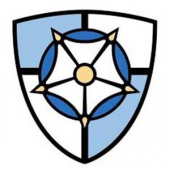
#91: Notre Dame of Maryland University
Notre Dame of Maryland University (NDMU) was founded by the School Sisters of Notre Dame in 1895. The university’s School of Nursing offers several CCNE-accredited programs at the baccalaureate and master’s degree levels. Undergraduates can pursue one of three BSN pathways: traditional, accelerated second degree, and RN-to-BSN (either campus-based or online). The prelicensure BSN pathways launched a few years ago, and students have since averaged an 84% first-time pass rate on the NCLEX licensure exam. At the graduate level, NDMU offers nursing administration and nursing education tracks in both its MSN degree program and its post-MSN certificate. Nursing students learn and work in the Center for Caring with Technology, which includes simulation labs equipped with computer-powered human simulator mannequins. This facility provides a realistic and risk-free environment for students to practice nursing skills and develop clinical reasoning.
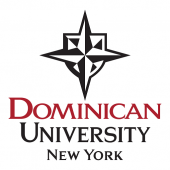
#92: Dominican University New York
Dominican University New York offers a breadth of undergraduate nursing pathways including a traditional four-year BSN, two accelerated prelicensure programs, and several RN-to-BSN options. The traditional daytime BSN is designed for LPNs and students with no nursing experience. It follows a conventional semester format, meeting five days per week. The weekday accelerated BSN program can be completed in just 12 months, and the weekend accelerated BSN in just 24 months, by utilizing a back-to-back trimester format. The university’s traditional and accelerated BSN students have passed the NCLEX licensure exam at a 72% first-try rate over the past decade. Nursing classes for the unique accelerated RN-to-BSN program are sequenced on Wednesdays only within an 18-month period. Select courses for the program are offered in a hybrid or online format. Dominican University New York also offers two graduate nursing programs: an MSN degree for aspiring family nurse practitioners and a post-master’s DNP degree. Each program is designed for working professionals to complete with two years of part-time study, utilizing a hybrid mix of weekday evening classes and online study.
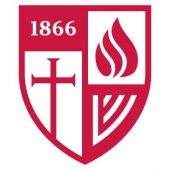
#93: Roberts Wesleyan College
The School of Nursing at Roberts Wesleyan College offers three nursing programs: a traditional BSN, an RN-to-BSN bridge pathway, and an MSN degree. The traditional BSN program is for students who are new to the nursing field. Over the past decade, approximately fifty students have graduated from the traditional BSN program each year, scoring an average first-time NCLEX pass rate of 80%. The RN-to-BSN bridge program is designed for working RNs with an ADN degree who wish to complete their baccalaureate education in a streamlined manner. The MSN program allows entry to BSN-educated nurses, with focal areas in both leadership / administration and nursing education.
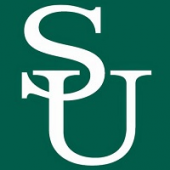
#94: Stevenson University
The Sandra R. Berman School of Nursing and Health Professions at Stevenson University offers traditional BSN, associate-to-bachelor’s (ATB), RN-to-BSN, MSN, and RN-to-MSN programs. The traditional BSN program features small class sizes and clinical courses beginning in junior year. Over the past decade, BSN graduates have achieved an 85% pass rate on the NCLEX-RN licensure exam. The ATB program allows students to begin courses toward a baccalaureate degree in nursing at Stevenson while they are simultaneously completing their associate degree in nursing at another institution. The RN-to-BSN and MSN programs are both offered online, and the RN-to-MSN pathway is available in both hybrid and fully online formats.
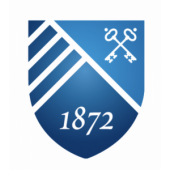
#95: Saint Peter’s University
Saint Peter’s University is one of twenty-eight Jesuit colleges and universities in the United States, and the only such institution in New Jersey. Founded as a liberal arts college for men in 1872, the school now serves a coed population of 3,500 students across more than fifty programs. The School of Nursing offers several routes to a BSN degree including a traditional four-year program, an accelerated second bachelor’s degree, and an RN-to-BSN pathway offered both on-campus and online. Approximately a dozen prelicensure BSN students graduate each spring. These students have scored an 89% NCLEX pass rate over the past six years, including a perfect 100% pass rate in 2018. At the graduate level, the school offers an MSN degree for aspiring adult-gerontology nurse practitioners, a post-master’s certificate in the same field, and a part-time face-to-face DNP program that can be completed in 5.5 years.
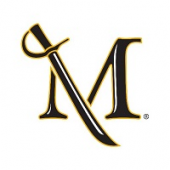
#96: Millersville University
Millersville University’s Department of Nursing offers both bachelor’s and master’s degree programs for licensed nurses. At the undergraduate level, Millersville offers an RN-to-BSN program in two formats: traditional (a mix of online and face-to-face) and 100% online. At the graduate level, the school has an MSN program for nurses who wish to pursue an advanced practice role like family nurse practitioner or nurse educator. In addition, Millersville offers a DNP program for RNs who already have a master’s degree in a related area, such as an MSN or an MPH. This 36-credit-hour program is structured for flexibility and part-time study, with a mix of blended, online, and face-to-face courses.
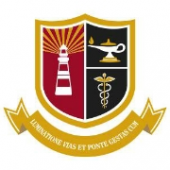
#97: Jersey College
The nursing school at Jersey College offers a licensed practical nursing certificate and a professional nursing associate degree. The ADN program has a traditional entry point for students new to nursing, as well as an advanced placement entry point for LPNs. Jersey College’s nursing curriculum includes classroom theory, challenging assignments, skill labs, and local clinical experiences. Across programs and campuses, students have enjoyed strong pass rates on the national licensure examination. For example, Teterboro students have scored an 87% NCLEX-PN pass rate since 2013 and an 85% NCLEX-RN pass rate since 2014. Ewing students have performed even more strongly, with a 92% NCLEX-PN pass rate since 2016 and an 88% NCLEX-RN pass rate since 2014.
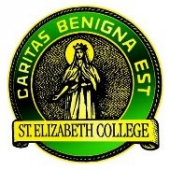
#98: St. Elizabeth College of Nursing
St. Elizabeth College of Nursing (SECON) was founded in 1904 as a single-purpose three-year diploma program in registered nursing. The college now prepares aspiring RNs through a comprehensive two-year AAS degree. Through SECON’s innovative 1+2+1 partnership with SUNY Polytechnic Institute, qualified high school graduates can earn both the associate degree and a BSN degree in just four years. The college boasts excellent student outcomes: over the past decade, SECON graduates have passed the NCLEX licensure exam at an 89% overall rate. Recent graduating classes have also achieved as high as an 89% employment rate within six months of program completion.
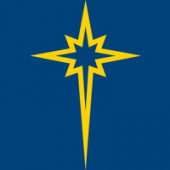
#99: St. Luke’s School of Nursing
St. Luke’s Hospital was just the fourth hospital in the country to operate a school for nurses. Today St. Luke’s School of Nursing is the nation’s oldest nursing school in continuous operation, with nearly 4,500 RN diploma graduates over the course of its 135-year history. Students are introduced to patient care in the hospital setting during the first semester of the program. Clinical training is provided at St. Luke’s University Hospital in Bethlehem as well as other local acute, chronic, and community care sites. St. Luke’s School of Nursing graduates 50-100 students annually, and they have averaged a strong 93% NCLEX pass rate over the past decade. The class of 2018 enjoyed a 97% nursing employment rate within nine months of graduation.

#100: Trinitas School of Nursing
In partnership with Union County College, Trinitas School of Nursing conducts a cooperative nursing program that awards graduates both a TSON nursing diploma and a UCC associate degree. TSON has been named an NLN Center of Excellence four consecutive times, and the school’s curriculum places special emphasis on addressing twenty-first-century healthcare challenges. Approximately 130-160 students complete the diploma program each year, and these graduates have posted a first-time NCLEX pass rate of 85% over the past eight years. TSON graduates can pursue a bachelor’s degree from Saint Elizabeth University through its RN-to-BSN program at the UCC campus. In fact, SEU also conducts a master of science in nursing program at the UCC site, enhancing the local mobility options for TSON graduates.
